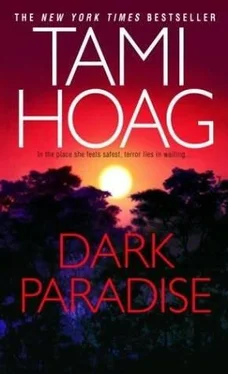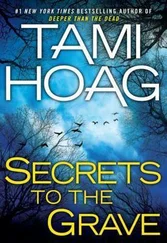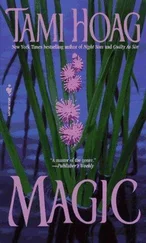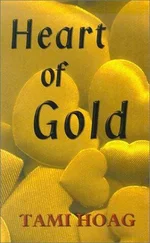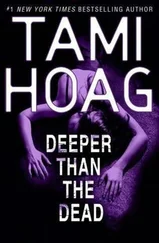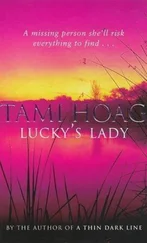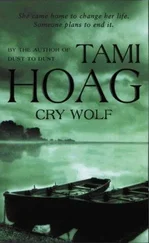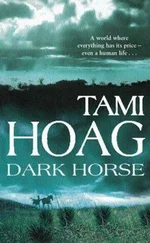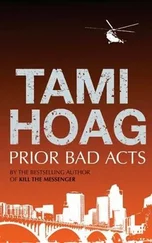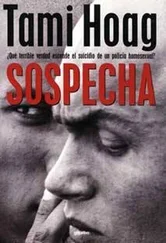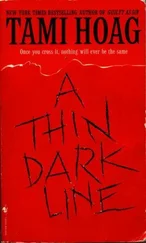The task was awkward and time-consuming because of her temporary handicap, but Mari dug steadily, pushing the spade into the ground with her foot and levering it up with her good arm. The spot she had chosen was far away from the house, on a little knoll of land that overlooked the creek and was shaded by a clump of young aspen trees. An exile of sorts, but a peaceful one.
She buried the box with the peanut tin inside and transplanted wild bitterroot on the grave. When the task was finished, she stood back, leaning on the spade, and stared down at the vibrant pink flowers. Bright, pretty, tough with bitter roots. Like Lucy.
The flood of feelings that came with thoughts of her friend were a muddy mix of loss and hurt and disappointment and gratitude. She longed to grab her guitar and try to pick through the tangle with the divining rod of her music. But she couldn’t play with one hand, and so she packed the feelings away in her heart to be sorted through another day when time may have given her the gift of perspective.
Turning back toward the house, she looked up the mountain and wondered if time had given J.D. any perspective.
She missed him. Damned ornery cowboy. She missed his toughness and the tenderness beneath it. She missed his hard opinions and the vulnerability behind them. She missed his arrogance and the rare glimpses of humor that tempered it. She missed his touch. She missed his kiss.
“So what are you gonna do about it, Marilee?” she asked out loud.
In her past life she would have done nothing but make excuses. They were wrong for each other. It wasn’t meant to be. Just this morning she had tried to tell herself it was best to do nothing. To accept. To settle.
The hell it was.
“Come on, Spike,” she said, starting back toward the ranch buildings. “We need a plan.”
J.D. slapped his catch rope against the leg of his chaps and shooed the two calves that had wandered back toward their mamas. The youngsters darted to the herd with their skinny tails lifted high. His horse fell out of the canter and dropped to a walk.
He had come up the mountain with the herd three days after the “Incident at Bald Knob,” as the newspapers had labeled it, and stayed on. He needed to spend some time with Del, to decide what to do about him. Beyond that, he needed some time to decide what to do about himself. A lot of things had turned around on him and shifted beneath him in the past few weeks-perspectives, philosophies, long-held beliefs. He needed some time to let it all settle into place.
He needed this-long days in the saddle, trailing after cows and calves, days on the mountainside and in the lush meadows with nothing but time to think and reflect. It was a luxury he seldom afforded himself, too busy with running the ranch and protecting the ranch and fighting off the outsiders. But he wasn’t the only one fighting and he wasn’t the only one capable of doing the work and it wasn’t his sole responsibility. It was Rafferty land and Will was a Rafferty too.
J.D. had left him in charge. The irrigation had to be seen to and plans made for cutting the hay crop. Will’s first concern was to see to Samantha’s recuperation, but he had accepted the jobs without complaint. By Tucker’s accounts, Will was applying himself with a seriousness heretofore unknown to him; Samantha was healing; the two appeared to be very much in love.
Good news. Something they had been short on for a long time. So why did that last part leave him feeling empty?
J.D. turned his thoughts away from the question and turned his horse toward the southeast. The day was waning. It was Friday, seventeen days since he had seen Mary Lee. Again he ducked the issue and focused on the prospect of lasagna for supper. Tucker brought supplies and lasagna on Friday.
He met Del at the edge of the basin and they rode up toward Bald Knob in silence. Del stared down at his saddle horn as they rode past the knob, the muscles in the shattered side of his face twitching with tension.
“We’ll need to talk about it, Del,” J.D. said, his heart feeling like a rock in his chest. He had tried to bring the subject up more than once since they had gotten the cattle settled, but Del had dodged it every time and J.D. hadn’t had the heart to force it. He couldn’t stand to see the sick worry in his uncle’s eyes, or the shame.
Del pulled up suddenly and pivoted his roan around so he could look out over the knob to the wide, flower-strewn meadow where the cattle grazed and beyond to the next mountain and the next, their shapes turning hazy and indistinct as the sun slid behind the farthest of them. He stared out at it all from beneath the brim of his hat, stared hard, as if he were memorizing every last detail.
He didn’t want to talk about what had happened. He didn’t even like to remember it, though the memory was always right there, hovering like a fog just beneath the plate in his head. It descended at night and tormented him, visions of the blondes with their features melding together until he couldn’t tell one from the other…
He had wanted only to do the right thing, to help save the ranch, to make J.D. proud of him. But he saw the looks his nephew sent him when he didn’t think he was paying attention, and they were full of pity and shame and regret.
“You ought to go back down, hadn’t you, J.D.?” he said, hoping against hope J.D. would say yes and simply leave, leave him be as if nothing had happened.
J.D. sighed. “Del-”
“You won’t send me away, will you, J.D.?” he asked flat out, then sat there, shaking inside, as he waited for an answer.
He kept his eyes on the view, afraid to look away from it, afraid that if he looked away, it would vanish. His hand crept up against his will and he rubbed his scar as if the smooth disk of flesh were a lucky penny. He wanted to tell his nephew what it had been like for him during that black period in the V.A. hospital, what it had been like to never see the sky or the mountains, to never watch the sunset except through a window with chicken wire imbedded in the glass. He wanted to explain how he couldn’t tolerate the lack of space and how the other patients crowded in on him and made it impossible for him to keep his mind together and focused on each individual moment, which was what he needed to do to stay sane. He wanted to tell J.D. what it meant to him to have this place and to have his duties on the Stars and Bars. But when he opened his mouth, all that came out was, “I’d die.”
J.D. clenched his jaw against the surge of pain for the old soldier sitting beside him. So much had been taken from him-his youth, his prospects, his face, his mind. All he had left was his job and his place on the land, and a small well of pride in being able to handle those simple responsibilities.
God help me, I can’t take that away from him.
But he had shot a woman, and he had proved that what was left of his mind could not be trusted in the face of stress. What if he happened across legitimate hunters and perceived them as a threat?
His courage running out on him, Del swung his horse back around and started up the mountain. “There’s chores need doing.”
J.D. followed slowly, accountability weighing him down like an anchor.
The truck was in the yard when they arrived at the cabin, but it wasn’t Tucker who sat on the tailgate tossing a Frisbee for the dogs. J.D.’s heart slammed into his sternum as she raised her head and looked right at him.
“Mary Lee…” he mumbled.
Her left arm was in a sling. She looked thinner. Her cheekbones were a little more prominent than they had been, the hollows beneath them deeper. Her jewel-blue eyes seemed impossibly large and deep beneath her dark brows. She wore black leggings and hiking boots and an old denim shirt that would have fit him. She eased herself down off the tailgate and swept back a chunk of streaky blond hair that had blown across her face.
Читать дальше
